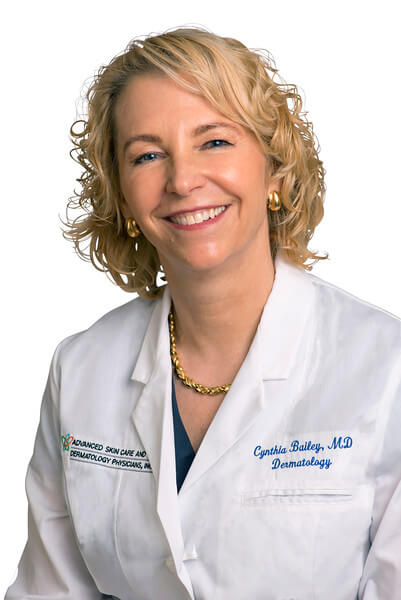Do Antibacterial Soaps Kill Germs and Prevent Illness?

Do Antibacterial Soaps Kill Germs and Prevent Illness? Have you wondered if they are the smart choice for you and your family during cold and flu season and especially during the COVID Pandemic? You’ve seen the 'antibacterial' claim on the over 2000 hand soaps and body washes. It usually sounds scientific and effective at killing germs but do they really work and are they safe?
FDA opinion on the effectiveness of antibacterial soaps
In 2013, when I first wrote this article, the FDA started requiring antibacterial soap manufactures to prove their 'antibacterial' claims. I am updating this post in 2020 during the COVID Pandemic and it turns out that the FDA is not a fan of antibacterial soaps or claims! The FDA final ruling on antibacterial soaps stated that,
manufacturers did not demonstrate that the ingredients are both safe for long-term daily use and more effective than plain soap and water in preventing illness and the spread of certain infections.
Sad news for all those soap manufactures but good news for consumers because it creates clarity.
Why did the FDA decide that antibacterial soaps don't work?
Companies making these products could not prove that they were effective. They were required to produce a full-on clinical study to prove that their product really does work better than regular soap at killing germs and preventing the spread of infections. The studies didn't stand up to the claims. Skin cleansers that are liquid, foam, gel hand soaps, bar soaps, and body washes with the following ingredients can NOT claim to be antibacterial:- Cloflucarban
- Fluorosalan
- Hexachlorophene
- Hexylresorcinol
- Iodophors (Iodine-containing ingredients)
- Iodine complex (ammonium ether sulfate and polyoxyethylene sorbitan monolaurate)
- Iodine complex (phosphate ester of alkylaryloxy polyethylene glycol)
- Nonylphenoxypoly (ethyleneoxy) ethanoliodine
- Poloxamer—iodine complex
- Povidone-iodine 5 to 10 percent
- Undecoylium chloride iodine complex
- Methylbenzethonium chloride
- Phenol (greater than 1.5 percent)
- Phenol (less than 1.5 percent)
- Secondary amyltricresols
- Sodium oxychlorosene
- Tribromsalan
- Triclocarban
- Triclosan
- Triple dye
It is important to note that these ingredients include a common ingredient that you want to avoid: triclosan.
The FDA recommends that you simply use soap and water to remove germs and bacteria from your skin - forget the triclosan. There are health concerns and bacterial antibiotic resistance concerns with triclosan. According to the FDA,
Triclosan can be found in many places today. It has been added to many consumer products—including clothing, kitchenware, furniture, and toys—to prevent bacterial contamination. Because of that, people’s long-term exposure to triclosan is higher than previously thought, raising concerns about the potential risks associated with the use of this ingredient over a lifetime.
There is now concern over the safety of triclosan to humans. It is thought by some to be hormone disruptors and animal studies suggest that daily exposure can affect testosterone, estrogen and thyroid hormones. Of concern is that triclosan has been found to be excreted in the urine of humans so we know that it is are absorbed into the human body.
Interestingly, the presence of triclosan in human urine has also been correlated with increased body mass index as well as environmental and food allergies. We have learned so much about the importance of the intestinal beneficial microbes that one has to wonder if triclosan is interfering with a healthy gut microbiome.
And, if this isn't enough to turn you running from triclosan, know that the EPA regulates the use of triclosan as a pesticide! It's just not an ingredient we want as a part of the daily skin care routine for ourselves or our family.
Environmental concerns regarding triclosan and triclocarban
These ingredients are also not good for us or the environment. The antiseptic ingredients triclosan (in liquid soaps) and triclocarban (in bar soap products) are building up in the environment, where they are long lasting. Humans and animals end up with these ingredients in their food and water.
Does the FDA antibacterial soap ruling apply to hand sanitizers and wipes?
No. Hand sanitizers and wipes with a minimum of 60% alcohol are known to be effective against the spread of germs. They are what consumers should use to disinfect their hands when they cannot wash their hands with plain soap and running water. I said this back in 2013 when I wrote this article and I'm saying it again in 2020 during the COVID pandemic.
 Washing with plain soap and running water is an “important step to avoid getting sick and to prevent spreading germs to others. When you can't wash with soap and water, using a hand sanitizer made with 60% or more alcohol is the other option for preventing the transmission of germs. - Dermatologist Dr. Cynthia Bailey.
Washing with plain soap and running water is an “important step to avoid getting sick and to prevent spreading germs to others. When you can't wash with soap and water, using a hand sanitizer made with 60% or more alcohol is the other option for preventing the transmission of germs. - Dermatologist Dr. Cynthia Bailey.
Additionally, COVID, like the flu viruses, are viruses not bacteria! I know that people have been confused between antibacterial soap and sanitizer claims and this new deadly viral germ. The bottom line is that washing with soap and water for 2 Happy Birthdays, or applying hand sanitizer with 60% alcohol, is the goal. That's even more clarity. It's also a recipe for dry hands!
What hand care do I recommend to my dermatology patients and what do I personally do to help prevent the spread of germs and also prevent dry hands?
I recommend a good hand washing with plain soap and running water as the main method of preventing the spread of germs. When that is not possible, then I recommend the use of hand sanitizer products with 60% or more alcohol.
As a dermatologist I want to elevate the hand washing practice to one of healing and hydrating skin care so that your hand skin stays healthy and comfortable as you wash away germs. To do this you MUST use a soap that is gentle on your skin and rinse it off entirely. You MUST follow up with hand cream at least several times a day. This is the only way to make it through the cold and flu season and the COVID Pandemic with healthy hand skin.
Dermatologist's Hand Care Advice to Prevent Dryness and the Spread of Germs
- Use a hypoallergenic soap that rinses off entirely under that running water
- Apply of an easy to use hand cream that does not make a greasy mess on everything you touch.
 These are the key elements of my Survival Kit for Busy Hands. Keep these products at all of your high traffic sinks. Give them to friends to spread the smart germ prevention and hand care dual goal. It's what infectious disease authorities are recommending and what dermatologists are recommending too.
These are the key elements of my Survival Kit for Busy Hands. Keep these products at all of your high traffic sinks. Give them to friends to spread the smart germ prevention and hand care dual goal. It's what infectious disease authorities are recommending and what dermatologists are recommending too.
References:
FDA Wants Proof of Anti-Bacterial Soap Claims
